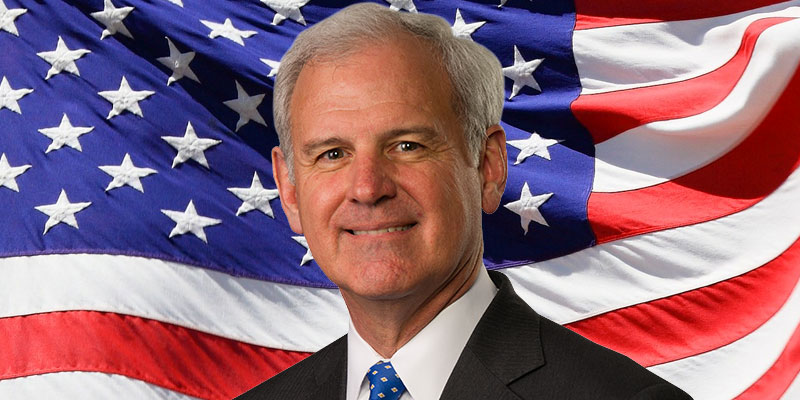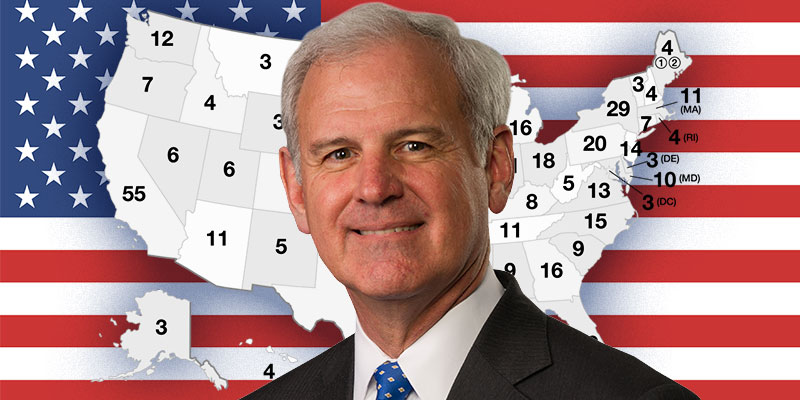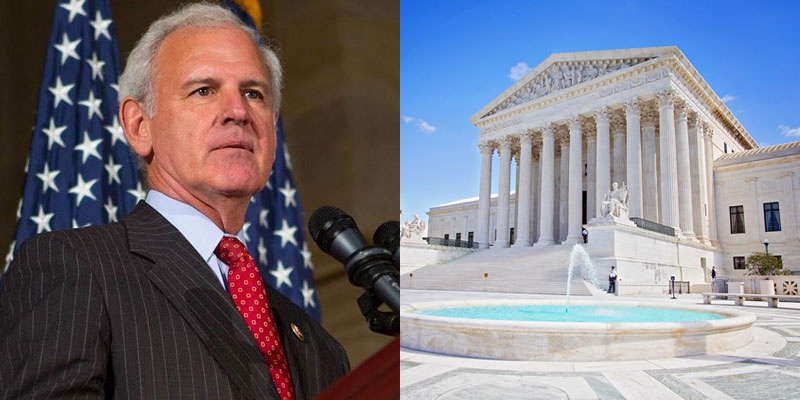I’ll never forget sitting in the U.S. House Chamber in January of 2017 watching the counting of the Electoral College votes from the 2016 presidential election. Under the 12th Amendment to the Constitution, the sitting vice president opens and counts the votes as submitted and certified by the electors chosen from each state, and the vice president must do so “in the presence of the Senate and the House of Representatives.” Because Inauguration Day was still several days away, the sitting vice president was Joe Biden, and as a member of the House, I was entitled to be there.
Procedurally, any representative or senator can object to any state’s electoral college votes but at least one member from the other house must agree with the objection before it can be considered. Alabama was the first state up, and Jim McGovern, a very liberal Democrat member from Massachusetts who served on the Rules Committee with me, stood up and objected because the Russians supposedly interfered with our vote for Donald Trump. He also made a blatantly false allegation that our state violated the Voting Rights Act and suppressed thousands of votes. No senator agreed with him and Vice President Biden ruled the objections out of order, which kept me from having to argue against McGovern’s silly and frankly slanderous objections.
The count went on and as every Trump state’s votes came up, a Democrat House member would stand up and object but because no senator agreed with the objections, Biden would rule them out of order. Finally, after several of these, Biden leaned into the microphone and said firmly to his fellow Democrats, “it’s over.” Though they hated the result, he was saying, the Constitution calls for the person with the most electoral votes to be president. And that person was Donald Trump, not Hillary Clinton.
This has been an extraordinary year, with the pandemic, a record economic downturn and recovery, riots and violence, and an unprecedented number of hurricanes. It will be an extraordinary election too, as record numbers of people have already voted in many states, but their votes can’t be counted until election day and many of those states’ election processes require days to count all those votes. There will also be challenges to the counting of some, perhaps many, ballots because they weren’t filled in or submitted properly. So, we aren’t likely to know the result on Election Day.
We didn’t know the result of the 2000 election until December, weeks after the election, and that took an extraordinary decision by the Supreme Court to resolve it in favor of George W. Bush. The 12th Amendment was passed and ratified because the 1800 presidential election resulted in an electoral college tie between Thomas Jefferson and his supposed running mate Aaron Burr. That threw the election into the House of Representatives which took 36 ballots to finally make Jefferson the president, three months after the election. In both cases, the nation moved on and accomplished great things.
Though this year’s election isn’t likely to be over as quickly as we are used to, all of us should be patient and trust in our Constitution and the institutions which have served us so well for over 230 years. There will be plenty of eyes on the process and nothing inappropriate is going to go unnoticed. Our intelligence and law enforcement communities have been closely monitoring foreign actors and will continue to do so after the election. Be careful of the information you receive during and after the election because we know there’s a lot of truly fake “news” out there, designed to divide us as a nation.
And when we have a result, if your candidate doesn’t win, let’s not have a replay of 2016 when Democrats refused to accept the result, who wouldn’t let it be “over” and shamefully called themselves the “resistance,” a slap in the face of the Constitution and our tradition of peaceful transfer of power. We’ve wasted too much time in Washington over the Mueller report and a failed impeachment effort, attempting to reverse the 2016 election. And we’ve had too much violence this year – we don’t need more due to the election.
If your candidate loses, the appropriate response is to be the loyal opposition – loyal to our nation and its Constitution but opposed to the policies of the victorious party. Remember, in American politics, today’s loser is often tomorrow’s winner.
Our greatest enemy isn’t a foreign nation but our internal division, driven by a hyper-partisan news media and entertainment industry ready to exploit every fault line in our country and craven before the far worse fault lines of countries where that industry makes a lot of money. Let’s ignore the media and entertainment industry and return to what we learned in school about the traditional values which make us great.
As a unified nation, there is nothing we can’t do, no problem or issue we can’t solve. We are one nation under God. Let’s keep it that way.
U.S. Rep. Bradley Byrne is a Republican from Fairhope.












